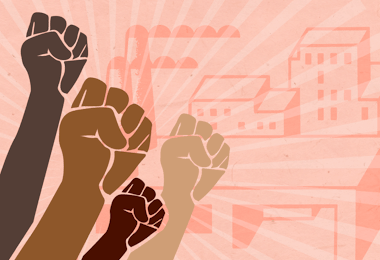Dr. Ronald C. Williams has been a member of the Coppin State University (CSU) faculty since 1996, where he also served as interim dean of the College of Business from 2013 until 2017. During his leadership, the college attained specialized accreditation through the Accreditation Council of Business Schools and Programs and was ranked as one of 2015’s top fifty of small college business programs in the United States by the Business Research Guide. Dr. Williams attributes the achievements to the BG Model for Academic Enterprise Development, a model he developed for assessing the needs of stakeholders and facilitating progress toward academic, career, and entrepreneurial success.
He also established the first formal relationship between a community-embedded makerspace (Open Works Baltimore) and a public HBCU; a program that awards certificates in entrepreneurship and innovation management; and a collaboration with the CSU Center for Nanotechnology, which won the Fan Favorite Award at the 2018 Allegheny Region Cleantech University Prize (CUP) Collegiate Competition, hosted by the Carnegie Mellon University’s Wilton E. Scott Institute for Energy Innovation. His deep concern for student development has led him to serve as faculty advisor to several student initiatives, including the 2020 Emerging Researchers National Conference (HBCU Making and Innovation Showcase), sponsored by the American Association for the Advancement of Science (AAAS) and the National Science Foundation (NSF).
A sought-after speaker and consultant, Dr. Williams is increasingly recognized for his makerspace and innovation ecosystem research. In 2019, he served as the principal investigator for “Turning Makerspaces into Greater Places: An Organizational Assessment and Economic Impact Study of Open Works,” (www.greaterspacesandplaces.com) one of the first economic impact studies of a makerspace in the nation.
During the same year, he served as panel moderator for “Who is a maker? Equity & Making” at Nation of Makers (NoM) National Conference; panel participant for the “Everyone is a Maker: The Impact of Diverse U.S. Maker Communities” at The Capitol Hill Maker Faire; presenter at the Fourteenth European Conference on Innovation and Entrepreneurship (Kalamata, Greece); and presenter at the New England Makers Summit. He is currently conducting research to develop an interpersonal and institutional trust framework for collaborative economic development, particularly across cultural and geographic divides where historic distrust exists.
Dr. Williams’s current ideas and positions can be read in the Brookings Institution Anne T. and Robert M. Bass Center for Transformative Placemaking Postcard Blog Series and the Baltimore Sun Top Workplaces Series. His unique concept of “ingepreneurship” is described in “Creating a University Driven ‘Ingepreneurial’ Ecosystem in West Baltimore: A Strategy for Rust Belt Revitalization,” published by the Metropolitan Journal in 2017. He also shares his experience through service on the boards of Open Works in Baltimore, Urban Manufacturing Alliance, and Times Community Services Corporation.
His education includes a PhD in management and organization from George Washington University in Washington, D.C., with a primary concentration in organization behavior and development and a secondary concentration in management of science, technology, and innovation. He holds a master’s degree in human resource development from Johns Hopkins University in Baltimore, Maryland, and a bachelor’s degree with majors in psychology, social science, and education from the University of Tampa in Tampa, Florida. Previous academic assignments include adjunct faculty positions in graduate programs at Johns Hopkins University and Loyola College in Baltimore.


